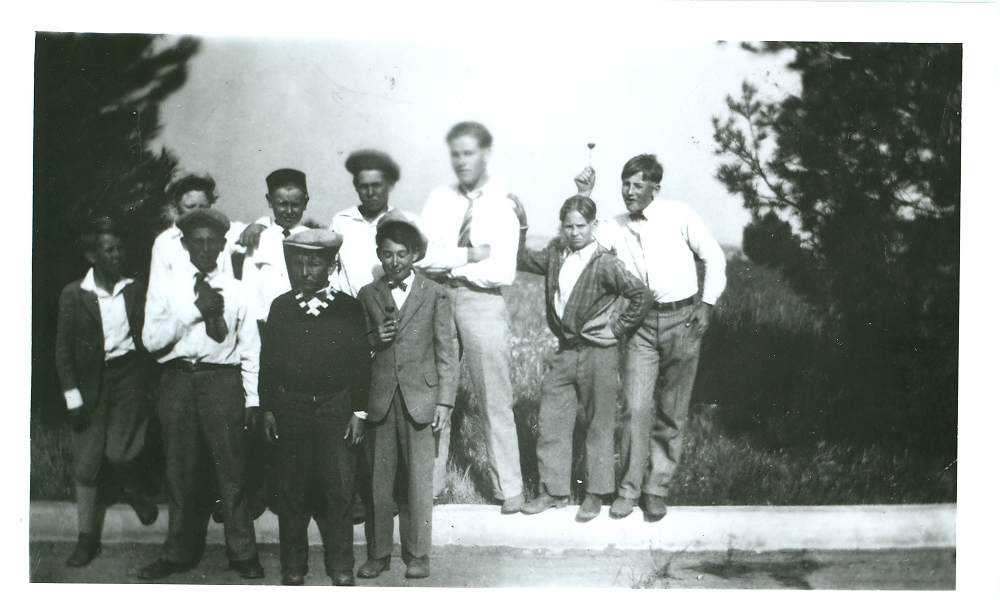Ministry among children and those not yet launched into adult life has always been part of the fabric of The Navigators. Soon after his conversion in 1926, Daws began to teach a Sunday school class of six boys in the church in Lomita, California. Through the challenges they presented he was forced to develop and sharpen his ministry skills. Although the word “teenager” was not coined until 1938, young people always had needs that an adult curriculum would not satisfy.
The Sunday school class soon broadened into the Fishermen’s Club for high schoolers and Prospectors for younger boys. By 1929, Daws had 225 boys in clubs in Lomita.
These clubs majored on scripture memory, living the life, and witnessing. Daws introduced arrows displayed in the Bible as a better way to have verses at hand for witnessing, and then the ladder index to move fluently around in the Scriptures. Prince Albert tobacco cans kept testaments in good condition and became a hallmark of the boys’ clubs.
The first memory course was designed in 1928: a booklet with sixty-two passages to memorize, but only 1 percent of the boys finished! Daws later designed a better memory system, with blank cards and a packet.
In 1931, at the height of the boys’ work, God commissioned Daws at age twenty-five for a worldwide ministry. He gave him Isaiah 43 and 58:12. As he prayed for forty mornings in the hills with Walt Stanton, he asked God for boys from all forty-eight states and from all the world, young men who would become soldiers of the cross. He formed the Minute Men team who served for eighteen months as a Gospel team in churches and young people’s groups around greater Los Angeles. His vision was to “take” the US one city at a time, establishing Fishermen’s Clubs. The Minute Men practiced a “daily dozen”: an hour a day in prayer, a verse a day memorized, a life a day touched, etc. He prayed that God would reach two million young people through their team and increase the boys club members from two hundred to one thousand.
By 1936, Boys Camps were described as “a fast-paced production, strict discipline, rugged training. All but a couple of boys preferred to the usual tepid treatment given in such camps. Daws’ wholehearted dedication to the project produced a new kind of boys’ camp.
During the 1937 Navigator conference, the desire for a Bible club work among boys was emphasized. The following year, this conviction was so strong in Daws’ circle that it was called “The Greatest Field of Service in America.”
